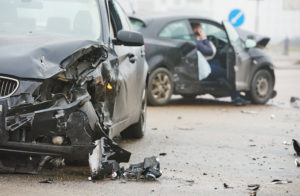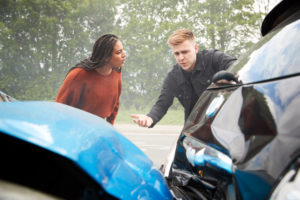Where Do Most Motorcycle Accidents Occur?
Navigating the legal landscape of a motorcycle wreck entails understanding where these accidents occur, the varying factors that lead to crashes, and how liability is determined. From bustling urban areas to secluded rural roads, various settings present unique risks for motorcyclists, so the help of a successful Richmond motorcycle accident lawyer is needed.
No matter which elements are present in your situation, the Pendleton Law Team is here with answers to commonly asked questions from motorcycle accident survivors. By addressing common inquiries, we hope to provide clarity for riders and other motorists, empowering you to take legal action with knowledge and confidence at the forefront.
What Are the Common Places Where Motorcycle Wrecks Occur?
Any reputable personal injury lawyer in Richmond can verify that motorcycle wrecks can happen in various locations, even when caution is being taken. However, certain places tend to be more prone to accidents. Here are some common areas where motorcycle accidents often occur:
Urban Areas
Cities and densely populated areas present unique challenges for motorcyclists. The increased traffic, congestion, and unpredictable maneuvering of other vehicles make urban areas a common setting for motorcycle accidents.
Intersections
Places where roads intersect and vehicles cross paths, are particularly hazardous for motorcycles. Collisions can occur when drivers fail to yield the right of way, make improper turns, or run red lights. Motorcyclists are vulnerable to being struck by other vehicles at intersections.
Highways and Freeways
High-speed roadways like highways and freeways pose significant risks to motorcyclists. The higher speeds, multiple lanes, and potential for sudden lane changes increase the chances of accidents. Factors such as driver distraction, impaired driving, or inadequate following distances can lead to severe motorcycle crashes on these roads.
Rural Roads
While less populated, rural roads can present their own set of hazards for motorcyclists. Tight curves, narrow lanes, uneven surfaces, and limited visibility can make rural roads challenging to navigate. Motorcycles may encounter unexpected obstacles or encounter wildlife, increasing the risk of accidents.
Parking Lots and Driveways
Surprisingly, motorcycle accidents can occur in parking lots and driveways, often due to drivers failing to notice motorcycles. Inattentive backing out, sudden openings of car doors, or drivers hastily pulling out of parking spots can result in collisions with motorcycles.
Motorcyclists have to remain vigilant and exercise caution in these common areas where motorcycle accidents tend to occur. Additionally, other drivers should be aware of the presence of motorcycles and take extra care to ensure their safety. By staying alert, following traffic laws, and sharing the road responsibly, everyone can contribute to reducing motorcycle accidents in these locations.
For a Free Legal Consultation
Call The Personal Injury Lawyer Hotline.
804-250-5050
Which State Has the Most Motorcycle Accidents?
Based on statistics provided by the National Highway Traffic Safety Administration (NHTSA) and the Insurance Institute for Highway Safety (IIHS), the states consistently ranked among the most common places where motorcycle accidents and fatalities occur are:
- California
- Florida
- Texas
- Ohio
To obtain the most up-to-date and accurate information specific to your state, it is advisable to consult your state’s Department of Transportation website. Much like Virginia’s DOT site, they will provide comprehensive data regarding motorcycle accident numbers in your state.
Let the Heavy Hitters® Take On Your Case 804-250-5050
Which Factors Contribute to Motorcycle Crashes the Most?
Understanding the key factors that contribute to motorcycle crashes is essential for promoting
safer riding practices and reducing accidents. Here are five significant factors that have been found to contribute to motorcycle crashes:
Speeding
Speeding is a leading cause of motorcycle accidents. Motorcycles are more vulnerable to loss of control at high speeds, and the reduced time available to react to hazards increases the likelihood of collisions. Excessive speed reduces maneuverability and extends stopping distances, making it challenging to avoid accidents or navigate curves safely.
Lane Splitting
Lane splitting refers to the practice of riding between lanes of slow-moving or stopped traffic. While lane splitting is legal in some jurisdictions, it can still be dangerous if not done cautiously. Factors such as vehicles unexpectedly changing lanes, limited space and driver inattention can lead to collisions. Riders who engage in unsafe lane splitting or fail to anticipate driver behavior are at higher risk of accidents.
Distracted Driving
Distracted driving is a significant hazard for all road users, including motorcyclists. Drivers who engage in activities like texting, talking on the phone, adjusting the radio, or using navigation systems divert their attention from the road. This reduces their ability to perceive and respond to motorcyclists, increasing the likelihood of accidents.
Impaired Driving
Operating a motorcycle under the influence of alcohol, drugs, or certain medications is extremely dangerous. Impaired driving affects a rider’s coordination, judgment, and reaction times, significantly increasing the risk of accidents. Alcohol and drugs impair motorcyclists’ ability to maintain control, follow traffic laws, and anticipate hazards.
Inexperienced Riders
Inexperience is a contributing factor in many motorcycle accidents, particularly among new riders. Lack of riding skills, inadequate knowledge of traffic laws, and limited understanding of motorcycle dynamics can lead to errors and poor decision-making. Inexperienced riders may be more prone to losing control, misjudging situations, or failing to anticipate dangers.
Addressing these factors requires a combination of rider education, enforcement of traffic laws, and public awareness campaigns. Motorcyclists should prioritize ongoing training, ride within their skill level, and adhere to traffic regulations. Drivers of other vehicles must remain attentive, share the road responsibly, and be mindful of motorcyclists’ presence to prevent accidents caused by these contributing factors.
Central Virginia's Top Rated Personal
Injury Lawyers 804-250-5050
What Is the Most Common Type of Motorcycle Accident?
When examining where the most common motorcycle crashes happen, the types of motorcycle accidents are of equal importance. The three main categories include:
- Rear-end accidents: Rear-end accidents occur when a vehicle collides with the back of a motorcycle. These accidents often happen when the vehicle following the motorcycle fails to maintain a safe distance or doesn’t notice the motorcycle slowing down or coming to a stop.
- Side-swipe incidents: Side-swipe accidents happen when a vehicle strikes the side of a motorcycle while attempting to change lanes or pass. These accidents typically occur when drivers fail to check their blind spots properly or misjudge the distance and speed of an approaching motorcycle.
- Head-on collisions: Head-on collisions involve a motorcycle and another vehicle colliding frontally. These accidents are often severe and have a high fatality rate due to the significant impact forces involved. Head-on collisions can occur when a driver crosses the centerline, tries to pass inappropriately, or enters an opposing traffic lane.
Understanding the common types of motorcycle accidents can help raise awareness among both motorcyclists and drivers of other vehicles. Motorcyclists should practice defensive riding techniques, maintain visibility, and anticipate the actions of other drivers. Drivers should give motorcycles adequate space, use mirrors effectively, and exercise caution when changing lanes or merging to promote safer road behavior.
Let Us Be The Heavy Hitters® For Your Case Speak To An Attorney Now
Does the Type of Motorcycle Accident Determine Liability?
In some states, where the motorcycle accident occurred or how the motorcycle was hit automatically determines who was at fault.
The determination of liability in motorcycle accidents is not solely dependent on the type of accident and where the crash may have commonly occurred, but also on the specific circumstances and the applicable laws of the state where the accident occurred. While the type of accident can be a factor in determining liability, it is not the sole determining factor.
In every state, liability is typically determined based on the concept of negligence. Negligence refers to a failure to exercise reasonable care, resulting in harm or damage to another person. To establish liability, it is generally necessary to demonstrate that a party owed a duty of care, breached that duty, and that the breach caused the injuries or damages suffered.
What Are the Legal Options for Motorcycle Accident Victims?
Motorcycle accident victims have several legal options to pursue compensation for their injuries and damages. If you have been involved in a motorcycle accident, here are some potential legal avenues you can explore:
- Personal injury lawsuit: You may have grounds to file a personal injury lawsuit against the at-fault party. To succeed in a personal injury claim, you need to establish that the other party was negligent or at fault for the accident. This can involve proving that they breached their duty of care, causing your injuries and resulting damages.
- Insurance claims: In many cases, motorcycle accident victims can seek compensation through insurance claims. This can involve filing a claim with your own insurance company (if you have relevant coverage) or pursuing a claim with the insurance company of the at-fault party.
- Settlement negotiations: Many motorcycle accident cases are resolved through settlement negotiations. This involves reaching an agreement with the at-fault party or their insurance company without going to court. Settlement negotiations can lead to a fair and timely resolution, allowing you to receive compensation without the need for a lengthy trial.
- Wrongful death claim: In tragic cases where a motorcycle accident results in the death of a loved one, surviving family members may pursue a wrongful death claim. This legal option allows eligible family members to seek compensation for their loss, including funeral expenses, medical bills, lost financial support, and emotional suffering.
Even in places where motorcycle accidents commonly occur, it’s important to consult with an experienced personal injury attorney who specializes in motorcycle accidents to determine the best legal options available to you and guide you through the legal process.
To take the next step, contact the Pendleton Law Team to receive a free consultation that’s tailored to your circumstances.
The Pendleton Law Team Is Here For You 804-250-5050



